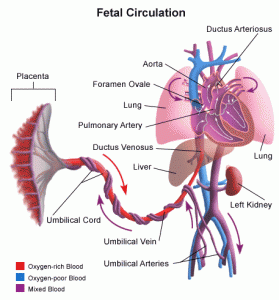I am sure that no matter what parenting style a person chooses, their parents or parents-in-law will disapprove. However, it has been my experience that attachment parenting sometimes gets the least support (and sometime the most upheaval) from the grandparental units.
My grandmother was told that her milk “was just water” and that she would have to formula feed her children. So she did, all 5 of them. And then they grew up and had babies and formula fed them too. Then I came along. I produced the first great-grandchild for my grandparents and the first grandchild for my parents. When we told everyone we were expecting there was undiluted joy. Not that baby is here, 10 months old, and still breastfeeding that joy has been tainted. When my husband, son, and I travel across the country to visit them I am expected to go into the other room to nurse my son (with the door shut and preferably locked). I am expected to tell my smaller cousins that he drinks formula but they can’t help feed him because he will only drink if I hold the bottle in a quiet room. It is assumed that I am weak-willed because the only way a 10 month old would be nursing is if I can’t “make him give it up cold turkey” (the idea that I actually enjoy nursing is totally inconceivable). I have answered the question “Are you ever going to wean him?” so many times that now I just say “I think we might have issues when he goes to college.” I have seriously considered not going home for the holidays this year because I feel like I am defending my decision to breastfeed constantly and not enjoying my family. (I also have to defend my decision not to feed my infant son soda and Oreos, but that’s another post.) Not to mention the last conversation with my mother ended like this:
Her: Are you still nursing my baby?
Me: If by your baby you mean my son, then yes we are still breastfeeding.
Her: Well, he’ll be a year old soon and then you’ll HAVE to stop nursing him.
Me: Why?
Her: Well, you don’t want him to grow up to be a child molester, or gay, or be in therapy for all of his adult life.
Me: Goodbye mother. <click>
It seems sort of unbelievable that people could be against breastfeeding of all things. Doesn’t my mom want the best possible nutrition for her perfect-besides-the-crazy-parents grandson? I can’t even get into the ridiculousness and lack of support surrounding cosleeping and being adamantly against spanking. And all of a sudden my decision to share a beautiful and nurturing experience like breastfeeding with my son has become gossip to my family. They are planning an ‘intervention’ if (and by that I mean when) I continue breastfeeding past his first birthday.
I have no idea how to navigate this minefield. On one hand I want my son to be close with his extended family, but on the other hand I want to just sever contact and not deal with the drama.
I have heard and witnessed many similar situations. Are your parents supportive of your parenting decisions? How do you deal with family who is outspokenly against attachment parenting? What is it about attachment parenting that gets people so worked up?
Alissa writes at A New History where she blogs about the challenge of authentic living with her husband, Levi and 10 month old son, Solomon.



 Then I was sure we both were calm, and our conversation went like this (I was trying to “Listen for Understanding”):
Then I was sure we both were calm, and our conversation went like this (I was trying to “Listen for Understanding”):


